Zero-ConfigUnitTestsGeneratedbyAIinSeconds
Let AI build your tests—so you can build features.

Trusted by
Smart Automated Unit Testing

Catch Bugs Early
Spot issues in isolated code before they snowball into complex production nightmares.

Refactor with Confidence
Make bold changes without fear-tests ensure nothing else breaks when you break code.

Speed up Debugging
Make bold changes without fear-tests ensure nothing else breaks when you break code.

Skip Test Gueswork
LLM's write accurate tests based on your code, so you avoid endless trial-error cycles.
End-to-End UTG Workflow: Architecture Overview
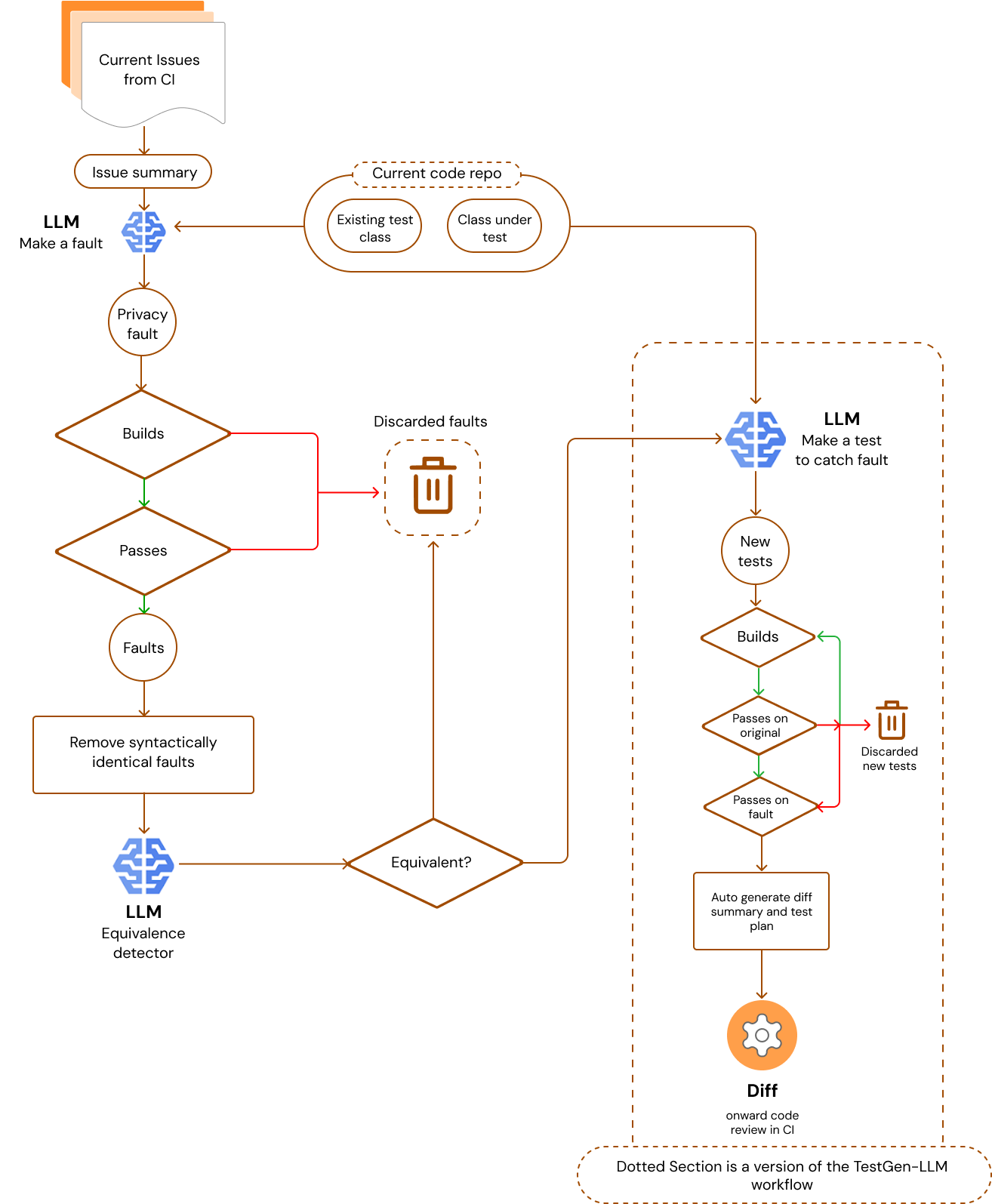
All this? Not your problem anymore—with Keploy
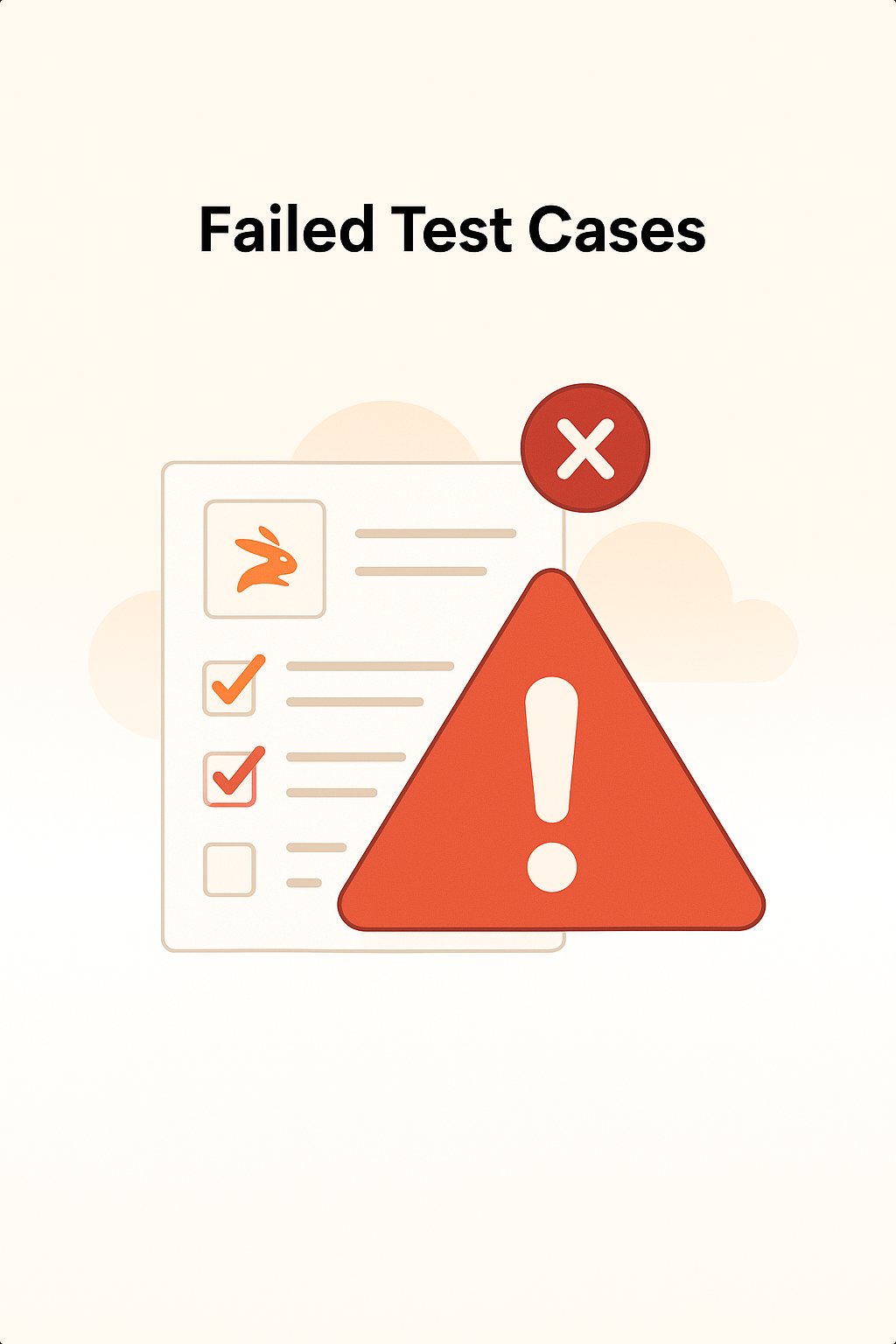
Failed Test Cases

Flaky Tests
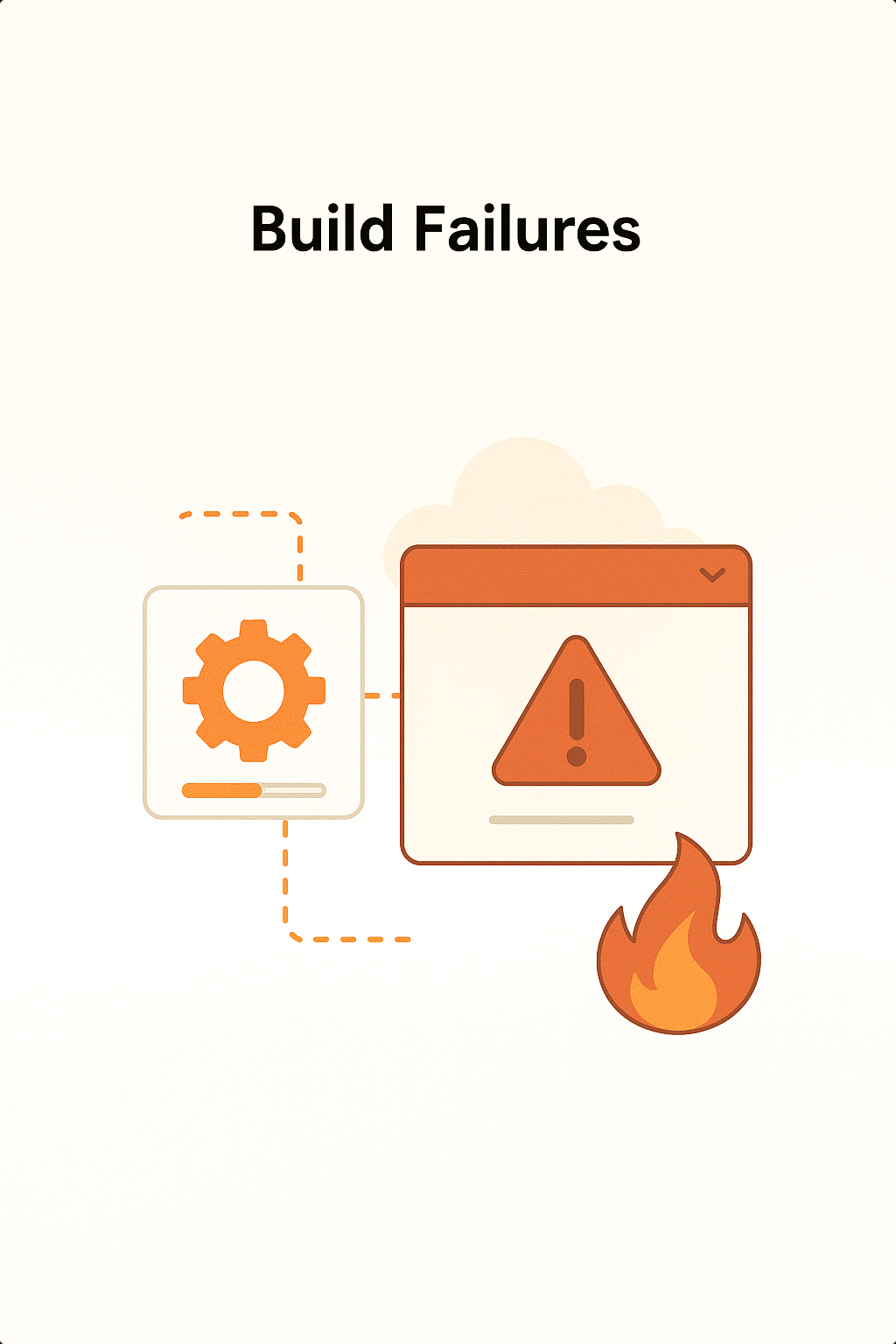
Build Failure

Manual Prompting

Missing Coverage
Fully automated Unit testing
Autogenerate your unit tests in Seconds
Just install Keploy in your GitHub repo. Every pull request gets test files generated, committed, and reported — instantly.
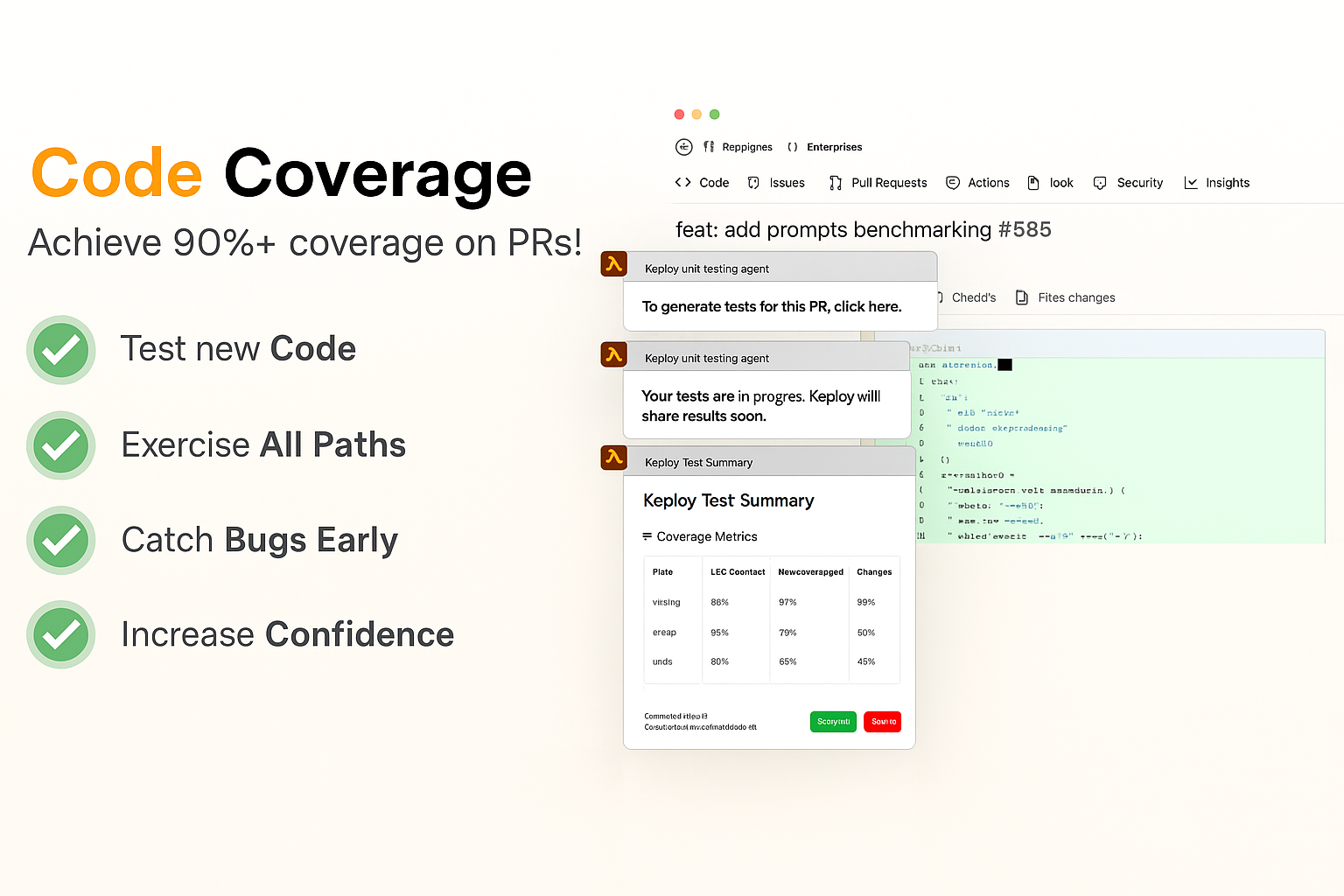
Plugin to your repo
Add Keploy to your GitHub repo or org. No config or setup required — we detect your stack and run tests where it matters.
Generate tests on every PR
Once a pull request is opened, just hit “Generate Tests”. Keploy analyzes the diff, writes focused unit tests, and commits them directly.
Get coverage and insights
View a detailed report on what was tested, what was missed, and how coverage improved — all within your PR timeline.
Keploy's Unit Test Generator Ensures

Model Evaluation
Keploy UTG analyzes multiple large language models (LLMs) and selects the most accurate and relevant response
LLM
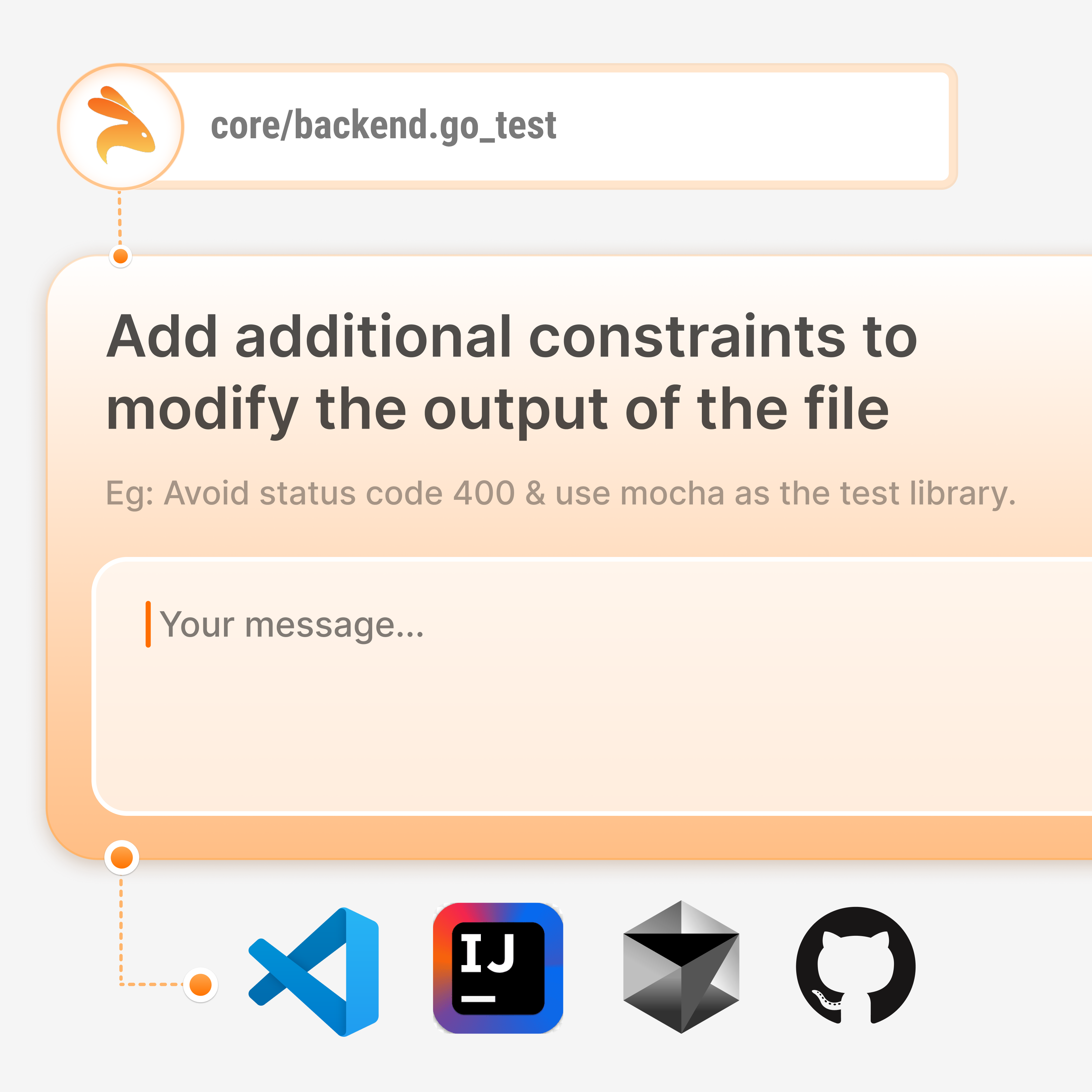
Autocomplete Code
AI-powered multiline, fill-in-the-middle code completion for unit tests with seamless multi-editor integrations
Autocomplete
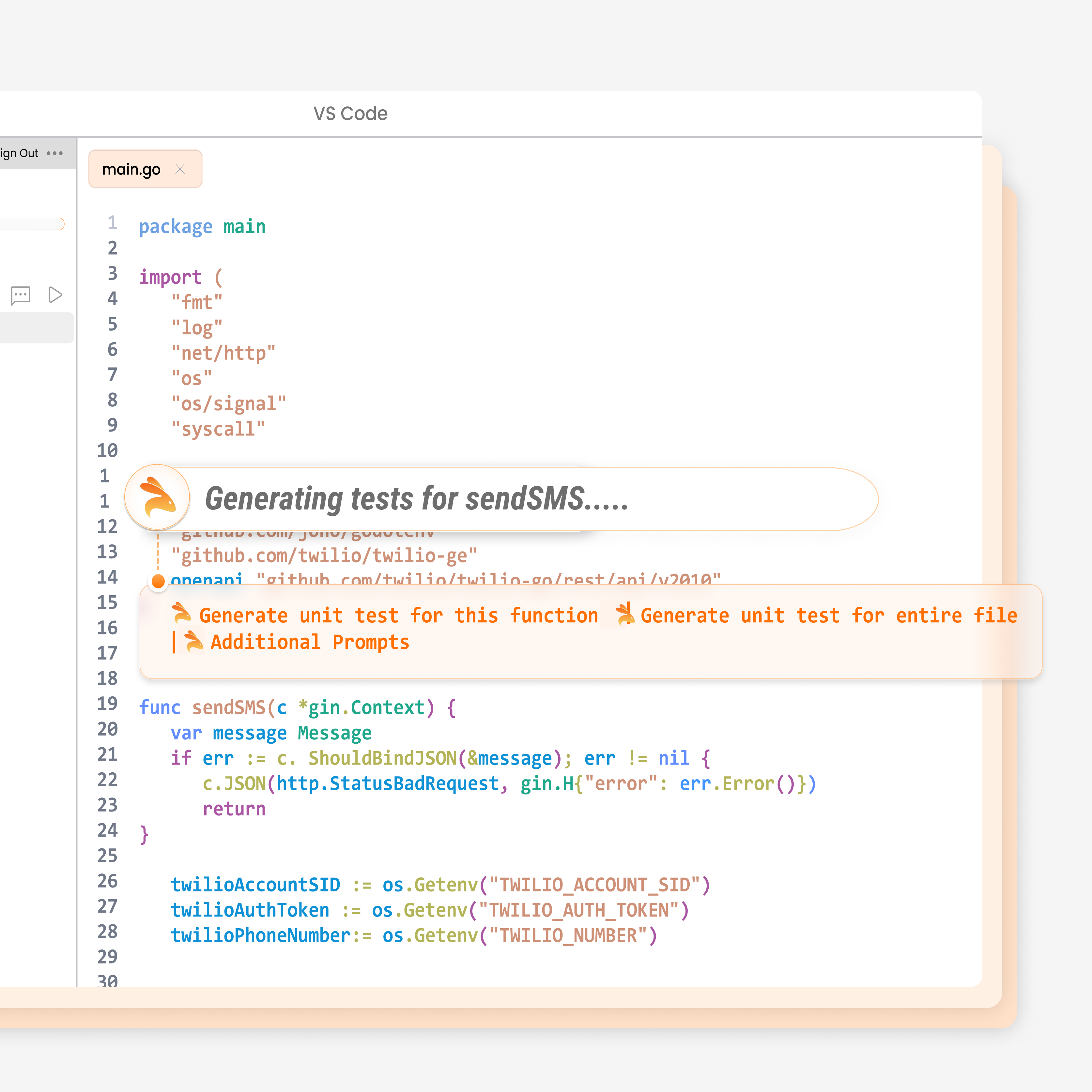
Comment Completion
Convert developer executable code into tests using AI-powered suggestions, seamlessly integrating with popular code editors.
Comment
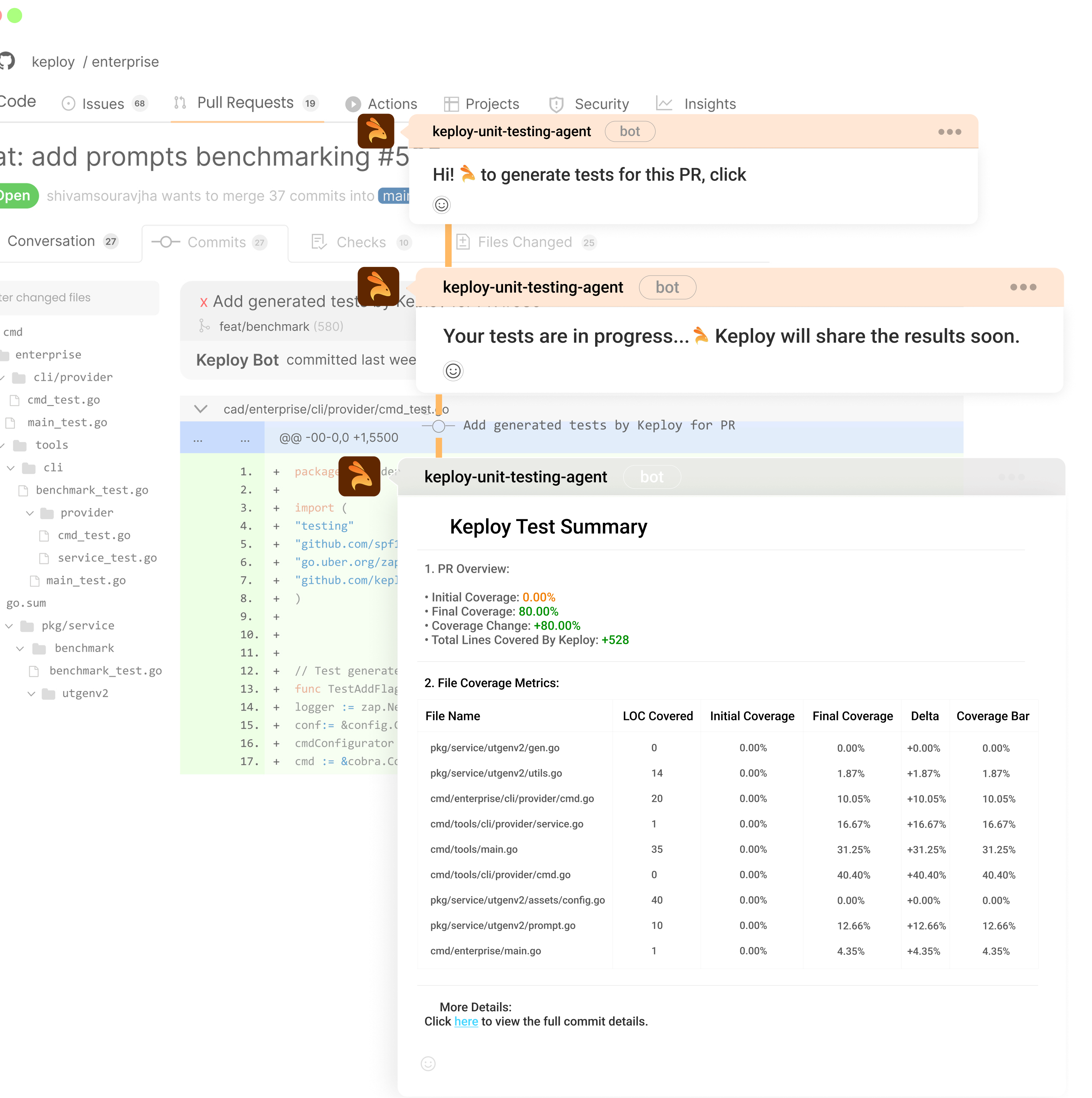
Commits to PR
Automatically generate commitable unit test files based on pull requests, integrating seamlessly with your workflow.
Commit

CI/CD Ready
Generated tests integrate seamlessly into CI/CD pipelines for automated quality assurance.
Integration

Dashboard Results
Delivers real-time, interactive dashboard analytics to monitor key metrics and performance trends at a glance.
Analytics
Replicate data from any source in your language



Community
Join the Keploy community
Follow updates, ask questions, share feedback, and ship faster with other Keploy builders.
FAQs
Keploy's UTG automates the creation of unit tests based on code semantics, enhancing test coverage and reliability.
No, Keploy does not send any user code to remote systems, except when using the unit test generation feature. When using the UT gen feature, only the source code and the unit test code will be sent to the Large Language Model (LLM) you are using. By default, Keploy uses - litellm to support vast number of LLM backends. Yes, if your organization has its own LLM(a private one), you can use it with Keploy. This ensures that data is not sent to any external systems.
Yes, Keploy is designed to handle large codebases efficiently, though processing time may vary based on project size and complexity.
By providing a zero code platform for automated testing, Keploy empowers developers to scale up their unit test coverage without extensive coding knowledge. This integration enhances testing reports, ultimately boosting confidence in the product's quality.
Yes, Keploy optimizes costs by automating repetitive testing tasks and improving overall test efficiency.
Keploy generates detailed Cobertura format reports, offering insights into test effectiveness and code quality.